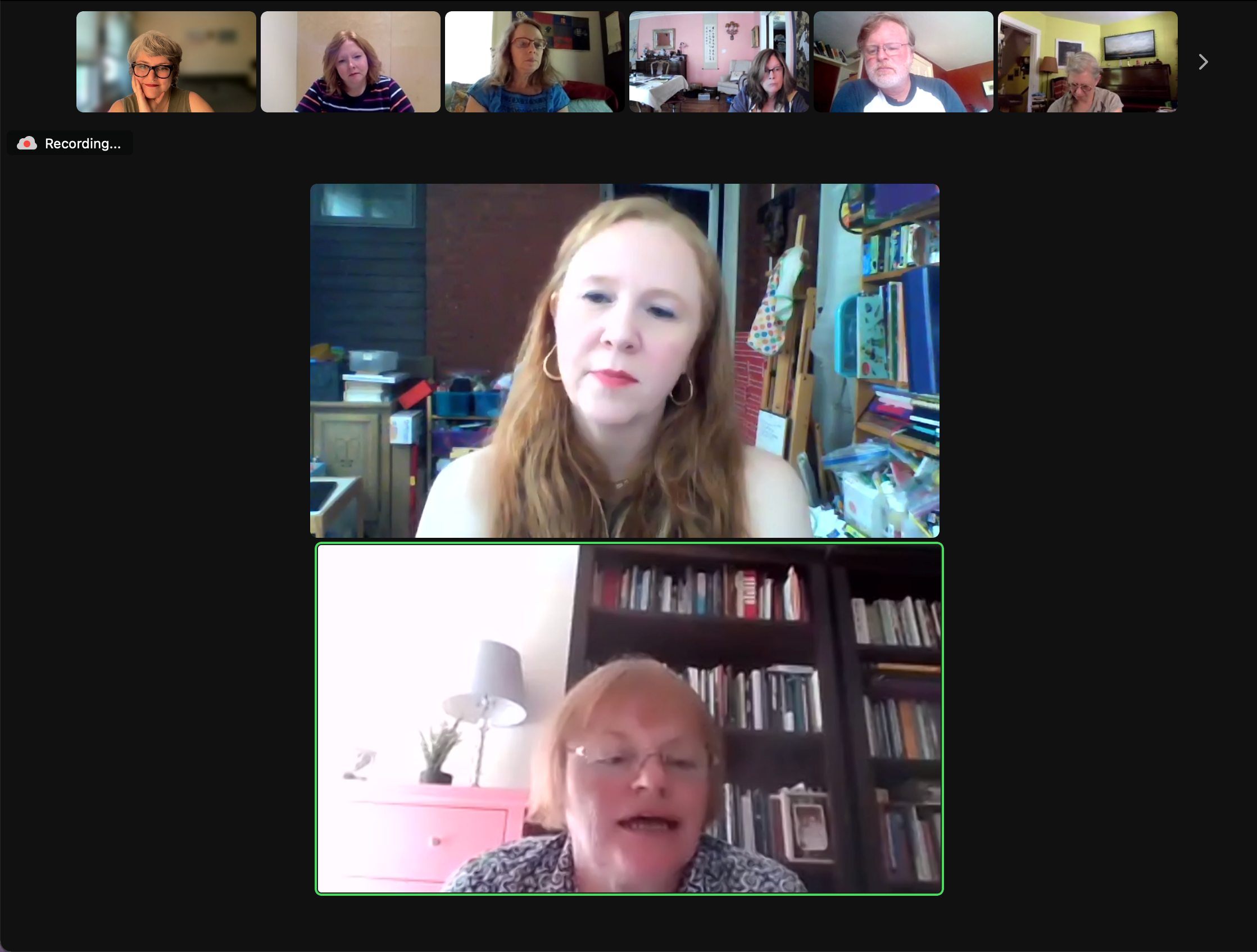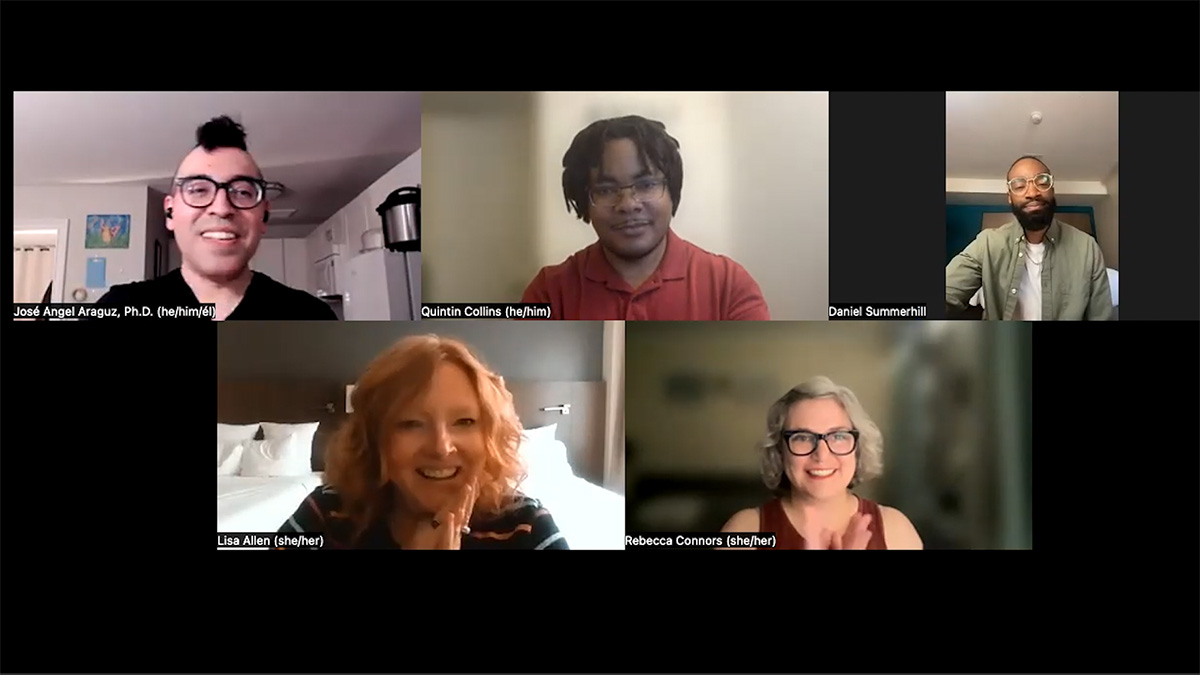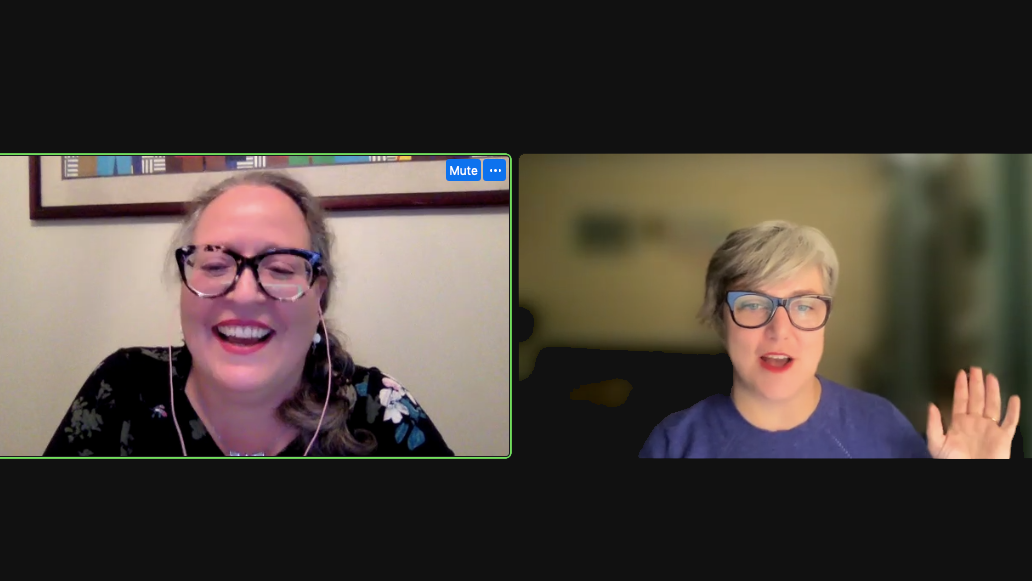In Conversation: Allison Adair & Eileen Cleary
“Fall in love with someone else’s work,” Meg Kearney told us. “It’s the best way to stave off the jealousy and that insidious belief that we do not belong.”
And how can we not fall in love with other people’s work when poets like Eileen Cleary and Allison Adair make the falling so easy? How can we not fall in love with Eileen’s clear and haunting images, her mastery of form? How can we not fall in love with Allison’s ability to find beauty in the dark, in her lush language?
I could go on and on, cite poems from these two poets that have kept me up and night and poems that have soothed me on difficult days. I could tell you how much I admire how they move in the world, how they champion other poets, how they continually put good work into the world and notice the same of others.
But mostly, I want you to take the time to listen to this conversation, because it is like being at the table with two generous and brilliant people. If you haven’t already, you will fall in love with their work.
Allison Adair’s debut collection, The Clearing, was selected by Henri Cole as winner of Milkweed’s Max Ritvo Poetry Prize and named a New York Times “New and Noteworthy” book. It is coming out in paperback on June 9th. Allison’s work has been honored with the Pushcart Prize, the Florida Review Editors’ Award, the Orlando Prize, a Massachusetts Cultural Council grant, and first place in the Fineline Competition from Mid-American Review. Originally from central Pennsylvania, Allison teaches at Boston College and Grub Street.
Eileen Cleary is the author of Child ward of the Commonwealth’(Main Street Rag Press, 2019), which received an honorable mention for the Sheila Margaret Motton Book Prize and 2 a.m. with Keats (Nixes Mate, 2021). In addition, she co-edited the anthology Voices Amidst the Virus, the featured text at the 2021 Michigan State University Filmetry Festival. Her poem “The Way We Fled” was recently anthologized in Tree Lines: 21st CenturyAmerican Poetry (Grayson Books, 2022.)


